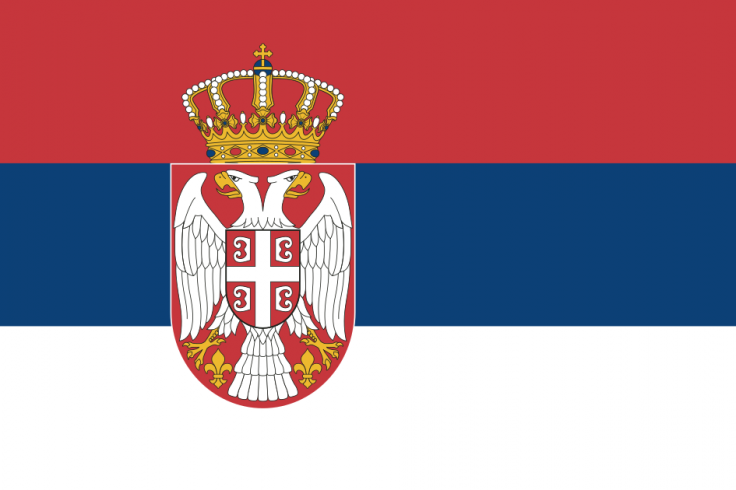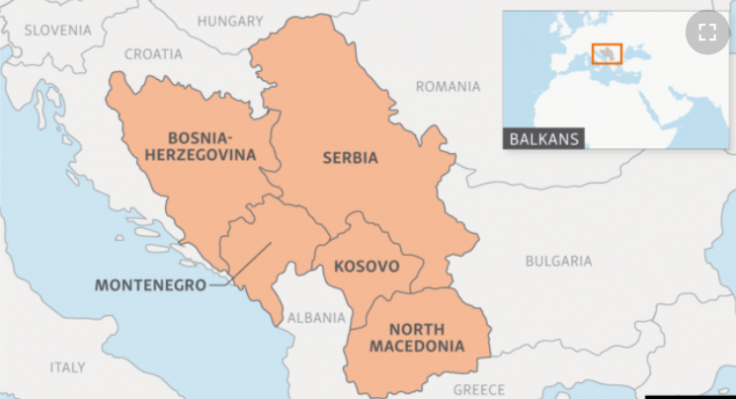Tensions between Serbia and Kosovo are brewing again, though Belgrade and Pristina settled a row over identity documents needed for their citizens to cross the borders.
On Wednesday, Serbia started military exercises near the border with Kosovo. Belgrade says the combat drills are routine events and not linked to the recent escalation of tensions,
"The training is carried out to preserve the high level of combat readiness of the units involved, and their capability to, if needed, quickly react to establish peace and security along the administrative line," Serbia's Defense Ministry said, according to Russia Today.

Kosovo's Controversial Move
However, the military drills were launched just two days ahead of the September 1 deadline that Kosovo has set for implementing controversial move that requires ethnic Serbs in northern Kosovo to use Kosovo license plates on their vehicles.
Tensions had flared up in July after Serbs blocked roads last week following Kosovo's attempts to implement the move. Under a deal brokered by the European Union last week between Belgrade and Pristina, Kosovo abandoned the move to impose Kososo-issued ID cards for Serbians crossing into the territory.
However, the issue of Kosovo license plates for the vehicles of Serbians remains an issue, and fresh round of tensions are expected when this becomes mandatory starting this week. It is in this backdrop that the army drills by Serbia near the Kosovo border are significant.
Actual Trigger
Geopolitical analysts believe that the current tensions are not so much about ID cards as about the hitherto unresolved issues following the conflict at the end of the last century and the resultant breaking away of the Kosovo region from Serbia.
Serbia has not accepted Kosovo's declaration of independence in 2008. Its major allies like Russia and China too have not accepted the Nato-engineered breaking away of the Kosovo region, as are several European Union members.
Analysts believe that what lies at the heart of the latest tensions, which flared up in July in northern Kosovo where ethnic Serbs are in the majority, is the unresolved question of Kosovo independence.
Nato's Role
"There's only one problem between Serbia and Kosovo, and that is the status of Kosovo," David Kanin, adjunct professor of international relations at Johns Hopkins University and a former CIA senior analyst. He told the Voice of America that other issues like the ID cards and license plates are "simply part of that issue."

"From September 1, [Kosovo] will ... try to force Serbs to change car plates, and I don't think they will have a big success" Serbian President Aleksandar Vucic has said.
Though Nato officials insist that there is no possibility of a war, the region is tense. Belgrade's military preparedness and drills increase the volatility further.
Serbia being one of the staunchest allies of Russia in Europe, the escalation along the Kosovo borders assumes added significance. Kosovo broke away from Serbia under a Nato occupation and proclaimed independence with the blessing of the United States.
Nato still has thousands of troops inside Kosovo. Though Nato is not officially pitted against Russia in the Ukraine war, the western military bloc's attention and resources are focused on the Ukraine war. The Nato allies are pumping money and equipment into Ukraine's war machine, as they badly want to stop a Russian victory in Ukraine.
A fresh conflict in Europe will dilute Nato's goals and will serve as a distraction that will suit both Russia and Serbia. This is the factor that geopolitical analysts are worried about as they weigh the prospect of a fresh conflict erupting in eastern Europe.








